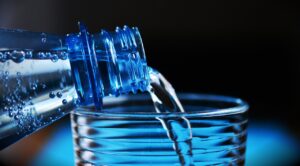Water is the most underrated health hack in your wellness toolkit. It’s not just a liquid—it’s the primary communication system of your body, a transportation network, and a critical metabolic player. Yet most people treat hydration like an afterthought, when it should be a strategic priority.
Your morning sets the metabolic tone for the entire day, and hydration is the opening act of this daily performance. Imagine your body as a complex machinery that’s been in shutdown mode for hours. The first glass of water is like turning on the ignition, priming your systems for action. Experts recommend consuming 16-20 ounces of water within the first hour of waking—before coffee, before breakfast, before anything else.
But hydration isn’t about mindless chugging. It’s a nuanced dance of timing, quantity, and individual needs. Your body absorbs water most effectively when consumed strategically. Drinking water 30 minutes before meals can actually support digestion and help regulate appetite. It’s a subtle trick that can support weight management and metabolic efficiency.
The old advice of eight glasses a day? Consider it a starting point, not a universal rule. Your hydration needs depend on multiple factors: body weight, activity level, climate, diet, and overall health. An intense gym-goer in a hot climate will have dramatically different requirements compared to someone with a sedentary indoor job.
Electrolyte balance is the secret sauce of proper hydration. Water alone isn’t always enough, especially after intense exercise or during high-stress periods. Minerals like sodium, potassium, and magnesium play crucial roles in cellular communication, muscle function, and overall metabolic efficiency. This doesn’t mean reaching for sugary sports drinks—think whole foods like coconut water, leafy greens, or a pinch of sea salt in your water.
Timing matters as much as quantity. Spreading your water intake throughout the day prevents the shock of sudden large volumes and supports consistent cellular function. Your body can only absorb so much water at once—drinking too quickly can actually reduce absorption and potentially cause discomfort.
Hydration impacts nearly every aspect of your health. It influences cognitive performance, mood regulation, skin health, digestive efficiency, and metabolic rate. Even mild dehydration can reduce your cognitive function by up to 20%. That afternoon brain fog? It might just be your body crying out for water.
The color of your urine is nature’s most honest hydration indicator. Aim for a light, pale yellow—think lemonade, not apple juice. Dark urine is a clear signal that you’re not drinking enough. But beware of overcorrection. Clear, completely colorless urine can indicate that you’re actually drinking too much water, potentially diluting essential minerals.
Different times of day call for different hydration strategies. Morning hydration should be gentle and replenishing. Mid-day hydration supports metabolic function and cognitive performance. Evening hydration requires a more measured approach to prevent nighttime bathroom interruptions.
Your relationship with water should be intuitive, not mechanical. Listen to your body. Drink when you’re truly thirsty, not just out of habit. Pay attention to how you feel after proper hydration—the increased energy, mental clarity, and overall sense of well-being are your body’s thank-you note.
Practical tip? Keep a reusable water bottle that you actually enjoy using. Make hydration an experience, not a chore. Add fresh mint, a slice of lemon, or a few cucumber slices if plain water bores you. The goal is consistent, enjoyable hydration.
Pro Tip: Try the “water before coffee” challenge. Drink a full glass of water before your morning caffeine and notice the difference in how you feel. Your body will thank you.








